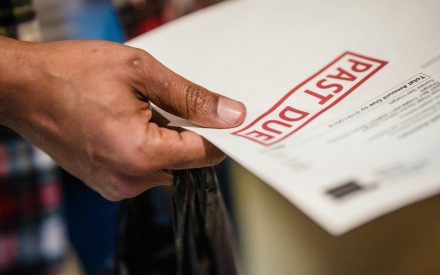Planning for the end of life may be challenging and very emotional. Thinking about issues like end-of-life health decisions and what should happen to items you own after your death can be complicated. One tool that can help with these issues is a will. A will is a document that gives directions about what to do with your property and who should care for your children, and others you make decisions for, after your death.
It’s important to know that if you die without a will, your wishes for how to handle your property and care for loved ones may not be honored. In Wisconsin, for your will to be valid, it must be in writing with your signature and the date you signed. Also, 2 people must sign the will as witnesses after they watch you sign the document. The 2 witnesses should not be beneficiaries in your will. “Beneficiaries” are people named in your will to receive property or an inheritance.
You have a few options to write a will. One option is to write your own will. All you need is a computer, a pen and paper, a printer, and 2 witnesses. Writing your own will may be a good option if your financial situation is not complicated, you have researched how to write a will, and you understand every statement in your will.
However, a will is an extremely important document, and it may be important to you to know that your will is legally enforceable after your death. Because of this, if you write your own will, it may help you to have a legal expert or service review your will to confirm it will be legally enforceable.
Of course, it may be best for you to work with a legal expert or service from the start of writing your will. To do this, you can:
- get started by contacting your county’s “bar organization or association” to learn of lawyers in your area, ask friends and family members for a referral, or use an internet search engine to find lawyers near you
- use an online template that has been prepared by a legal expert like this form available to buy at https://wilawlibrary.gov/services/forms.html
- Use a highly reviewed app that makes wills
If you are interested in this topic, you should consider participating in UW-Extension’s Planning AHEAD program. Planning AHEAD is an end-of-life planning program that is offered in-person and online.
Also, you can talk about resources to help you make a will, and other important family and financial topics, with a UW-Extension educator in your county. Visit https://counties.extension.wisc.edu/ for more information.
Definitions of Important Terms
Will: a legal document that determines
- Who you choose to inherit the assets you own
- What should happen to assets you own, and
- Who you would like to be legal guardian for your minor children
Beneficiary: A beneficiary is a person you choose to receive an asset after your death.
Payable on death (POD) account: An account that allows you to name a beneficiary who inherits the account funds after your death. POD accounts include checking accounts, savings accounts, and others. If you name a beneficiary or beneficiaries on a POD account then those beneficiary or beneficiaries can receive the assets much easier and quicker than if the assets needed to go through the probate court.
Probate: After your death, the court reviews your will to determine what should happen to your property. This process is called probate.
Transfer on death (TOD) account: An investment account, also called a brokerage account, that allows you to transfer investment assets to a beneficiary after your death. TOD accounts include stocks, bonds, mutual funds, and others. If you name a beneficiary or beneficiaries on a TOD account then those beneficiary or beneficiaries can receive the assets much easier and quicker than if the assets needed to go through the probate court.
Trust: A trust is a legal instrument that holds and manages assets for the benefit of the owner (you), also known as the grantor. If property is held in a living trust, it usually does not need to go through probate.
Frequently Asked Questions
| Question | Answer |
| How do I make a will? | Working with a lawyer or legal expert to make your will is recommended. However, it is legal for you to make your own will. |
| What is included in a will? | A will may include any property you own. It can be most helpful if your will includes items you own that do not have a beneficiary designation on a payable on death (POD) account or transfer on death (TOD) account. |
| Why can it be helpful to name a beneficiary to an asset? | If you name a beneficiary to a POD or TOD account, it will not need to go through probate. Going through probate often takes time (as long as 12-18 months), includes fees, and is released as public information. |
| Can I make a beneficiary designation for my residence? | Yes, you can name a beneficiary for your residence. You will need to complete legal paperwork and submit it to your county office, which may be called the register of deeds, recorder of deeds, or the county clerk. You may also need to have the form notarized. |
| What can be done to avoid probate? | Besides creating beneficiary designations, it may also be possible for your property to be held as joint property and/or to establish a living trust. |
Download Article


 Administración de las finanzas después de una pérdida de empleo
Administración de las finanzas después de una pérdida de empleo Ways to Get Out of Debt
Ways to Get Out of Debt Using Digital Coupons
Using Digital Coupons Managing Finances After a Job Loss
Managing Finances After a Job Loss


